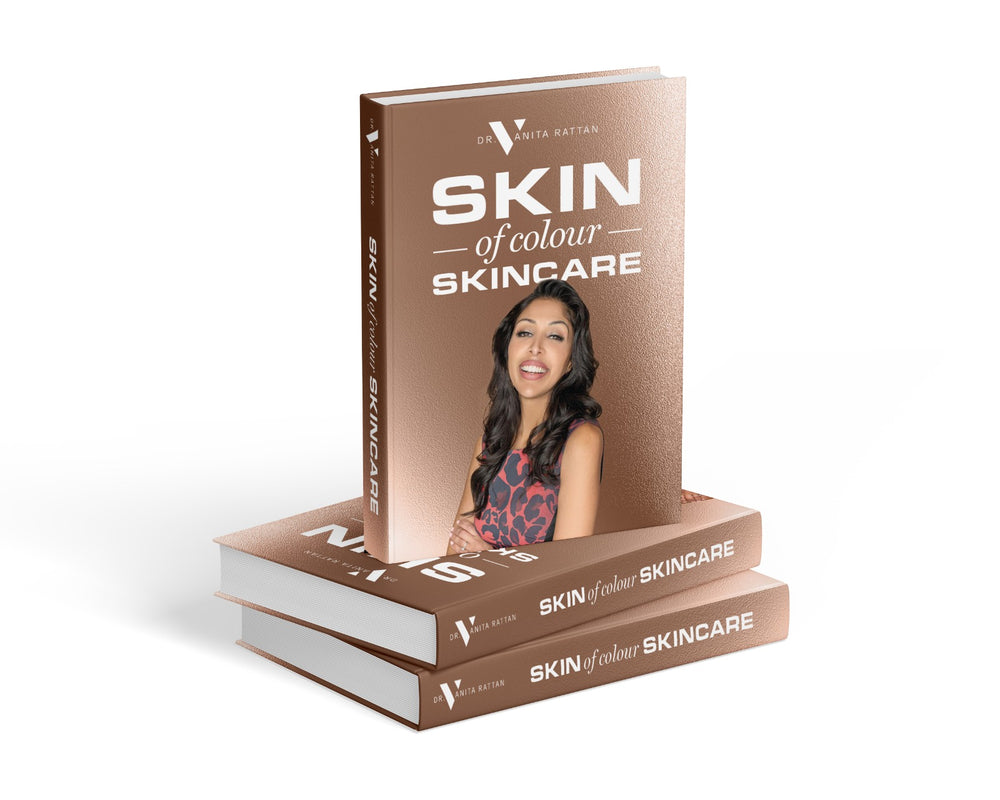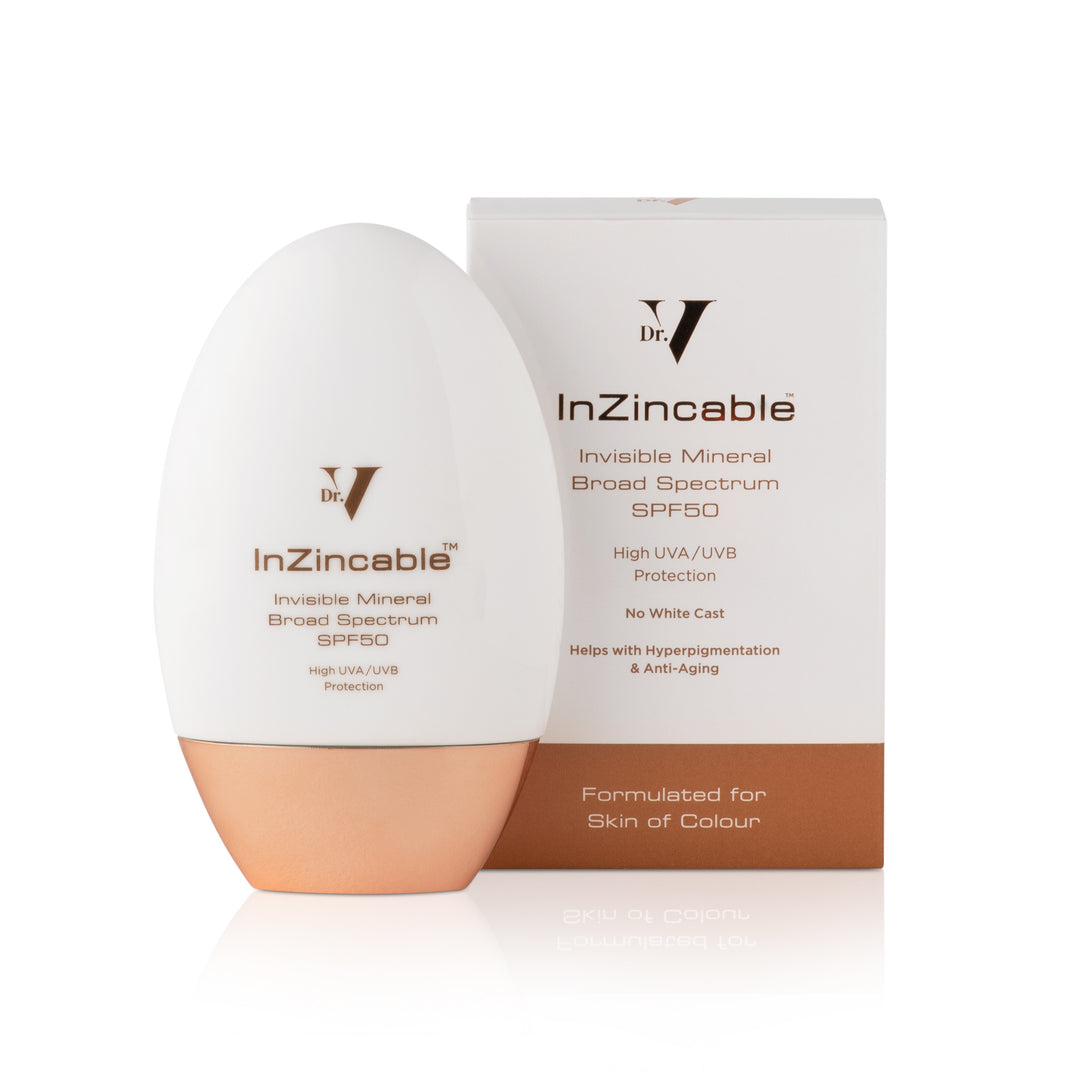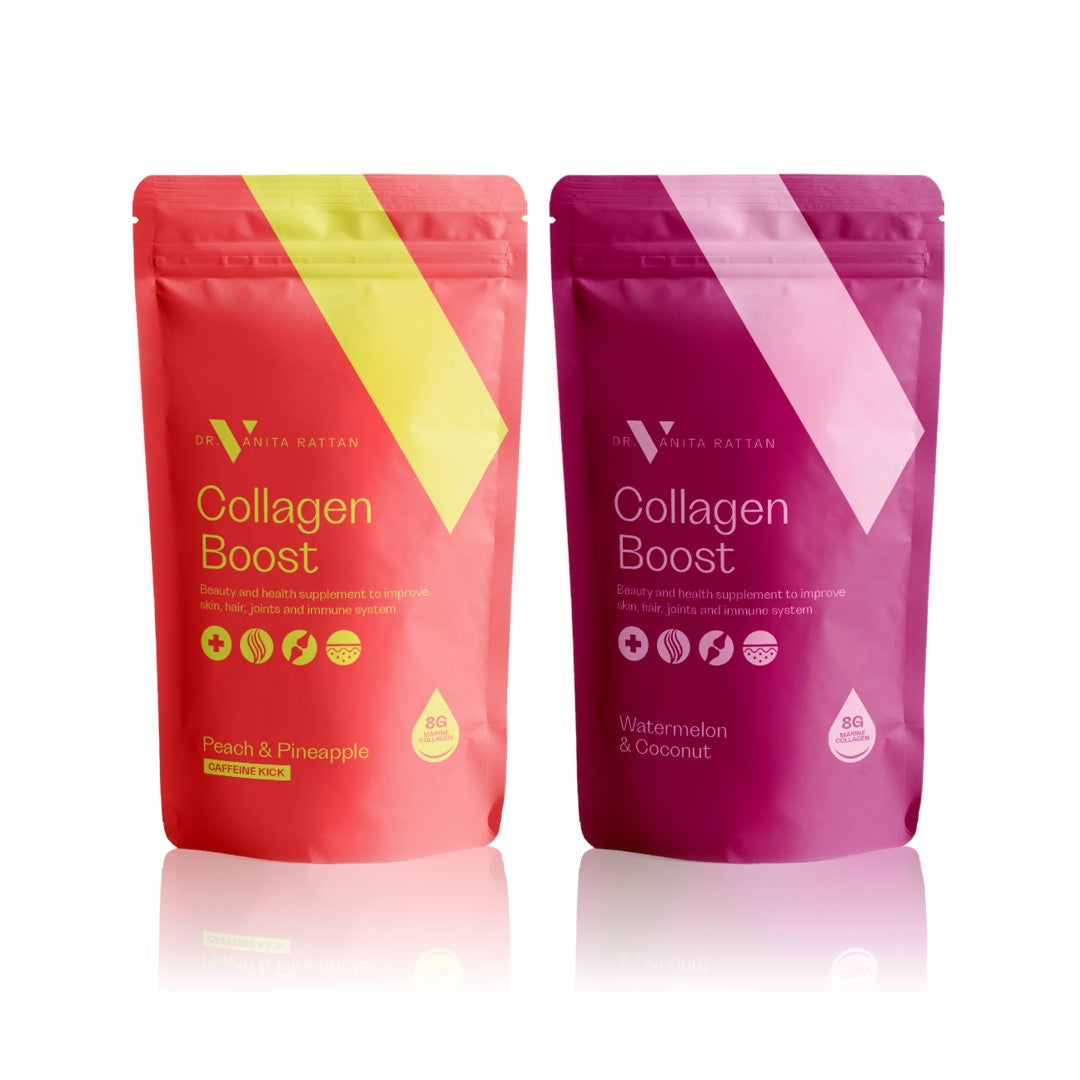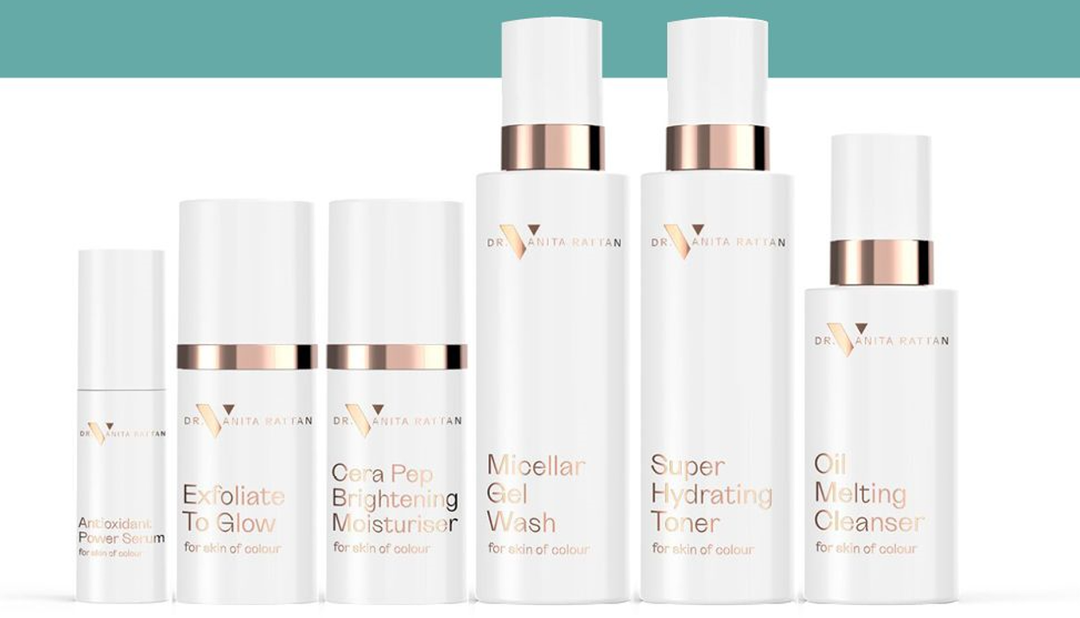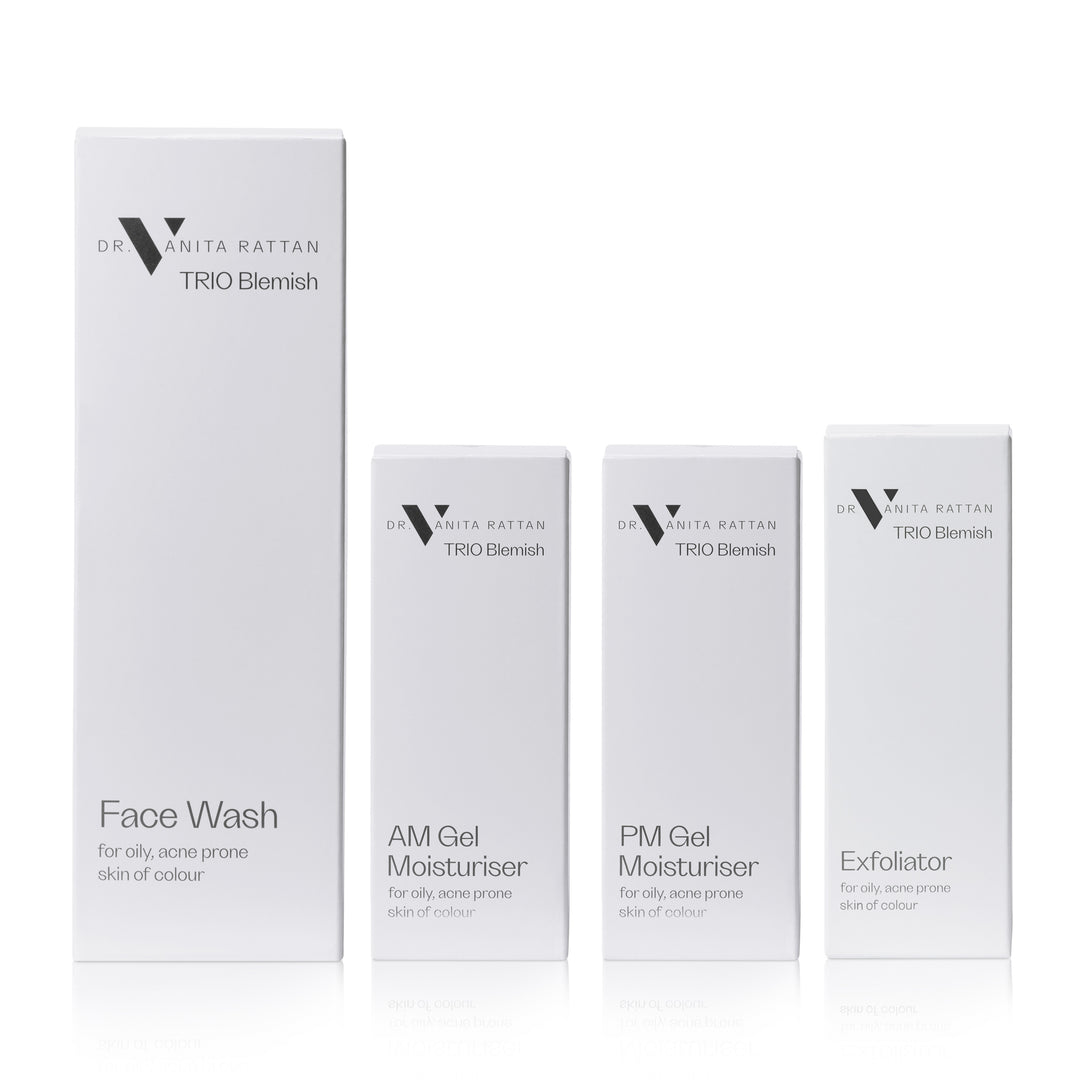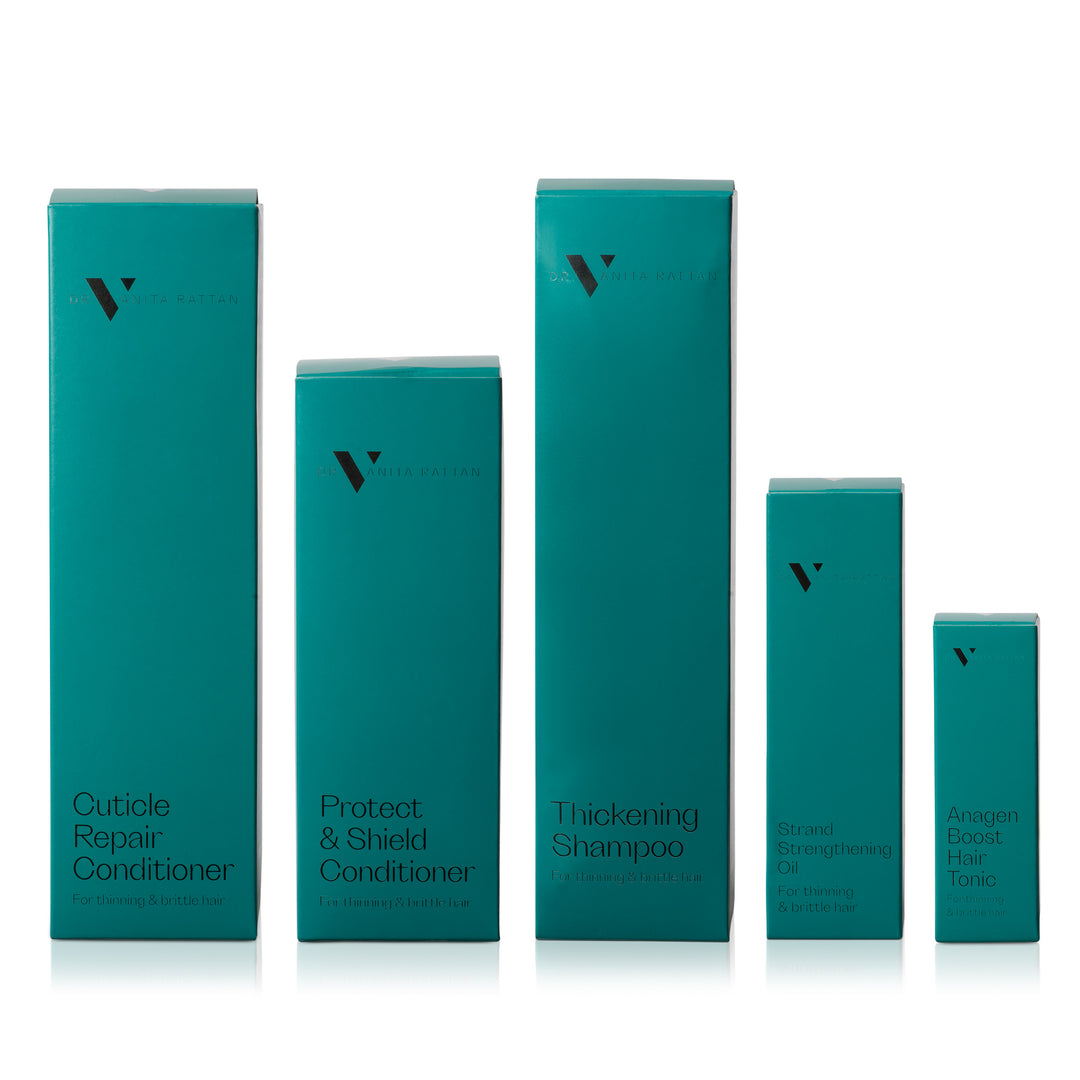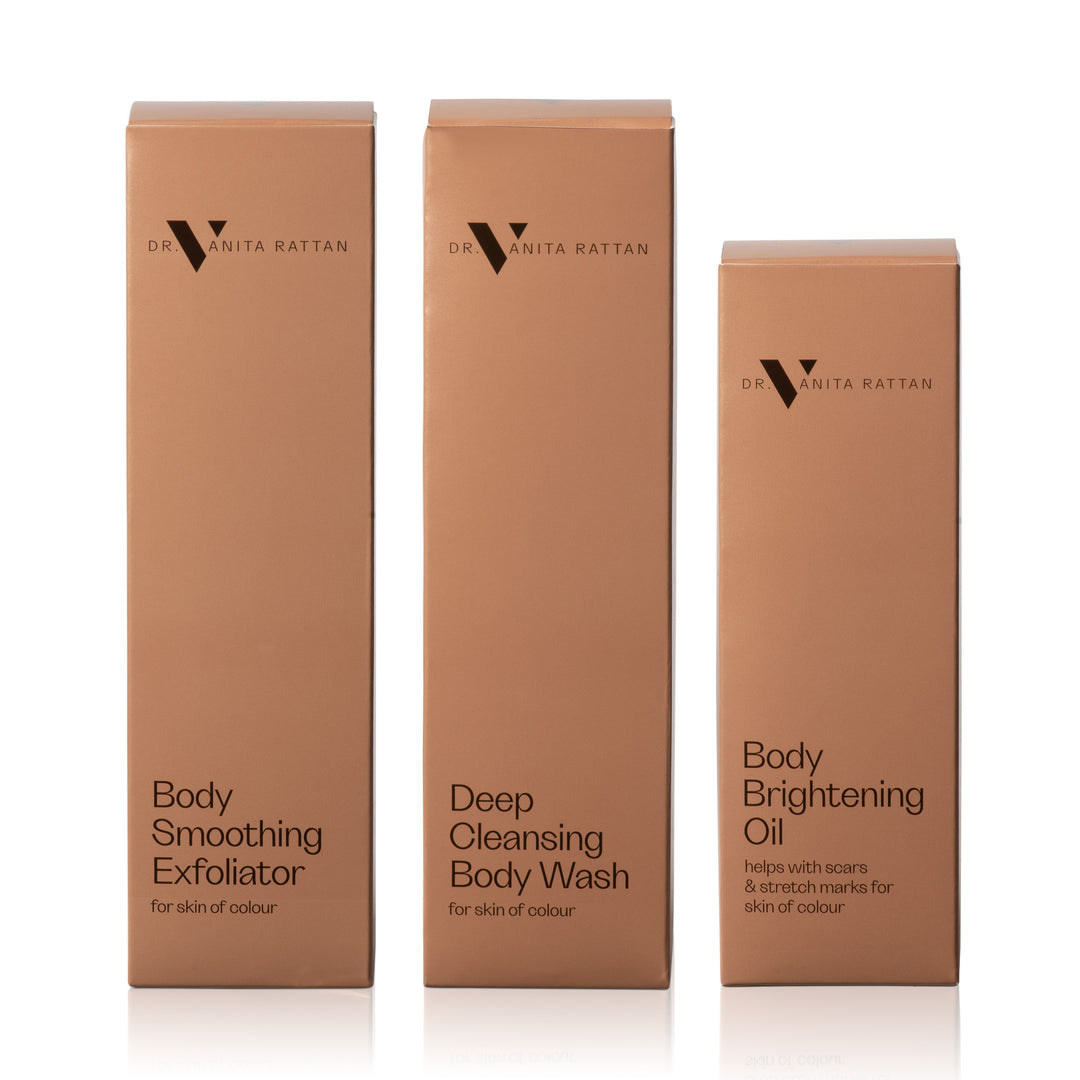How To Treat Hair That’s Dry, Brittle & Feels Like Straw
Treating hair that is dry, brittle and feels like straw is a hair care challenge many of us face. It can be frustrating and disheartening, especially when it feels like you’ve experimented with countless shampoos for shine, hair oils to restore moisture and scalp treatments for hair growth.
The journey to strong and healthy hair can feel like an uphill battle, especially when we're faced with daily environmental stressors that strip our hair of its innate moisture and vibrancy. When our hair isn't looking its best, we often resort to using heat to try to make it more manageable or stylish. Unfortunately, this can create a vicious cycle where our hair never feels or looks its best. That’s why I’ve compiled easy, practical tips to treat hair that feels dry and brittle. I’ve included subtle changes to your everyday hair care routine, the best ingredients to look out for, and how to strike the right balance between styling and maintaining hair health.
Avoid oiling the scalp
When treating hair that ‘feels like straw’, we are taught to add moisture to the hair by using serums and oils. Whilst this can be beneficial for the ends of your hair, which are more vulnerable to moisture loss due to their age and exposure, oiling your scalp with most types of oils is a no-go.
Dandruff is caused by a yeast like fungus called Malassezia that feeds on the oils and build up on the scalp. We don’t want to feed Malassezia anymore with oil, even if you feel temporary relief. Your scalp naturally produces oils, known as sebum, which are essential to lubricate the hair and provide a protective barrier against environmental stressors like dirt, pollutants, and UV radiation. Oiling the scalp can lead to an excessive build-up of oil, which can make your hair feel greasier, irritated, and itchy. This imbalance could contribute to hair looking and feeling lifeless too. Instead, focus on moisturising your ends, using our Strand Strengthening Oil to combat dryness and brittleness.
Use conditioner before your shampoo.
This tip may come as a surprise to many, as most people shampoo their hair before conditioner. Shampoos contain surfactants in it, which are the cleansing agents that help remove dirt, grease, or other impurities from the scalp. However, when we rinse out the shampoo, it naturally flows down the length of the hair which can strip the natural oils from the ends. This can lead to dry, brittle, and damaged hair strands. By applying conditioner beforehand, you create a protective layer to keep your hair strands hydrated and nourished.
For ‘the sandwich method’, you want to begin your hair washing routine by applying a thick Cuticle Repair Conditioner on the hair strands. Follow this with an anti-dandruff and anti-tangle Hair Thickening Shampoo to clean the scalp. Finish with a Protect and Shield Conditioner that will strengthen and guard against future breakage. Moisturised ends are less susceptible to breakage, so this technique is great for cleansing the scalp without excessively drying out the ends.
Don’t brush your hair in the shower
Your hair is at its weakest when wet. When hair is dry, it's coated by the natural oils produced by the scalp which acts as a protective barrier. On the other hand, wet hair is more fragile, elastic and has zero protection. That's why it's important to handle wet hair with care, avoiding brushing it in the shower which can lead to increased hair loss and split ends. Unless you have curly African hair, brushing wet hair vigorously with a hairbrush can cause the cuticles to lift further, leading to frizz, tangles, and damage. Therefore, it’s best to brush your hair before the shower with a wide toothed comb.
For curls, it makes sense to brush your hair in the shower as the water helps to provide slip and softening, making it easier to detangle without causing excessive damage. If you have curly hair, use plenty of conditioner on your hair strands and use a hair detangler from the bottom upwards to reduce stress on the scalp.
Look for the right ingredients in your haircare products
When looking to revitalise hair that feels dry and brittle, the right products can make all the difference. In your thickening shampoo, you want to look for ingredients like Glycerin, Niacinamide and Vitamin A which improve the health of your scalp whilst cleansing, so your hair growth follicles are strengthened. Salicylic acid can also help to remove excess sebum from the scalp.
Your conditioner should reduce frizz, ease combing force, improve shine and hydrate the hair strands. Triglycerides, shea butter, dimethicone and isodaucene are all great ingredients to reduce friction and add moisture. Your leave in conditioner should be lighter and absorbed quicker, whilst protecting you from heat styling and environmental stressors. Look for humectants which add moisture without heaviness and protect your hair from damage. Panthenol can also improve elasticity without breaking your hair strands.
For hair oils, you want a light, silicone-based oil that will reduce frizz, improve shine and protect you from heat styling. If you go for raw oils, like coconut oils, it will be too heavy, and you may need to wash your hair a few times to get rid of it. The more you’re washing your hair, the more you’re weakening it- so you want to avoid this. Instead, seek carrier oils which are lightweight and will hydrate the hair strands, such as alma oil, jojoba oil, castor oil and sweet almond oil. Avoid fragrance, denatured alcohol, and essential oils in all your haircare products as this can dry and damage your hair further.
Increase protein in your diet
Protein is an essential component for maintaining the health and strength of hair. Hair strands are primarily composed of a protein called keratin, which gives them structure, resilience, and elasticity. Keratin fills in the weak points along the hair shaft, providing additional support and reducing the likelihood of split ends and breakage. Ensure you are getting enough protein in your diet to support your hair health by consuming fish, chicken, turkey, legumes and nuts.
Marine collagen is also a type of protein, derived from the skin, scales, and bones of fish. Dr V Collagen Boost Drink formulations can help repair damaged hair by providing the necessary building blocks for hair structure.
By Dr Vanita Rattan, Nov 2024


